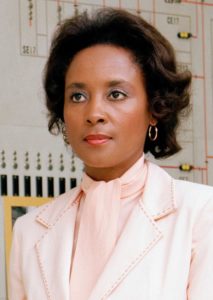
By Sister Tarpley, NDG Religion Editor
The 2019 Women’s History Month theme is “Visionary Women: Champions of Peace & Nonviolence.” The theme honors “women who have led efforts to end war, violence, and injustice and pioneered the use of nonviolence to change society.” My emphases will be on Black women only.
Annie Easley (1933-2011) was a computer scientist, mathematician and rocket scientist. She worked on Centaur technology at NASA — a high-energy rocket technology that uses liquid hydrogen and liquid oxygen to boost rockets into space.
Cathay Williams, because of an error incorrectly understanding her name, became William Cathay (a male soldier.) According to an Army doctor; William Cathay enlisted in the United States Regular Army as a Buffalo Soldier in 1866.
The Army surgeon examined William Cathay, the recruit, but failed to realize that William Cathay was a female and not a male; the surgeon determined the recruit fit for duty and assigned William Cathay to the 38th U.S. Infantry; it was established in August 1866.
Cathay Williams carved a small, but symbolically important place in the history of American women, in the history of Black women and in the history of the United States Army.
To date, she is the only documented woman who served in the U.S. Army prior to the official introduction of women.
Nannie Helen Burroughs was one of the best known and well-respected women of the early twentieth century. She was called ‘The Black Goddess of Liberty’. She was an educator, institution and organization-builder and a major figure in the Black church and secular feminist movement.
Burroughs became a much sought after participant, particularly by the Republican Party. When Herbert Hoover was elected President in 1928, he chose Burroughs to head a fact-finding commission on housing. In 1909, she founded the National Training School for Women and Girls, which was renamed the Nannie Helen Burroughs School in 1964.
Annie Onieta Plummer was dubbed “The Dictionary Lady”. In 1992, she noticed that many school children in Savannah, Georgia were not carrying any books.
On her own initiative, she invested 50 dollars in 30 pocket dictionaries and proceeded to hand them out on the street corner. Her project gained nationwide attention and was emulated in other areas and mushroomed.
Always aware of the value of education, she went back to school at the age of 42. In each dictionary she handed out, she inscribed the motto of the United Negro College Fund, “A mind is a terrible thing to waste,” supplemented by her personal message, and “I challenge you not to waste yours.”
Black women scientists, engineers and inventors have made important contributions to the science of chemistry.




